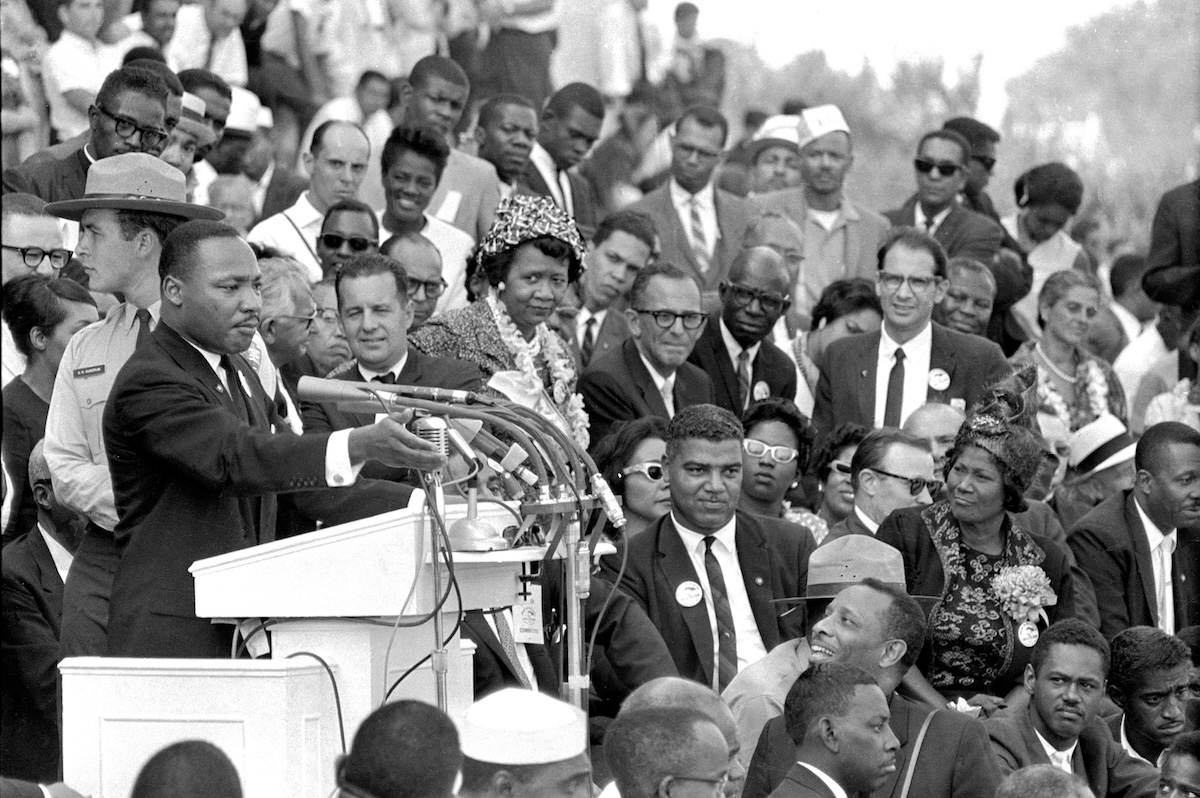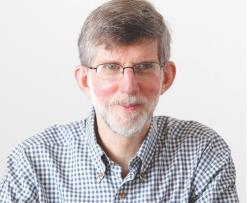We celebrate the January 15, 1929, birthday of Martin Luther King Jr. on the Monday closest to his birthday every year—and this year that Monday is today, January 15. King’s single most quoted sentence is probably this: “I have a dream that my four little children will one day live in a nation where they will not be judged by the color of their skin, but by the content of their character.”
That certainly wasn’t the case in the year King was born. It was still not the case in the year he was assassinated, 1968. How often does that happen even now? In this tribalistic time, do we really expect people from different races and classes to get along? Maybe the key is in the title of a book (later a movie) my friend Lynn Vincent coauthored, Same Kind of Different as Me.
King always tried to build cross-racial alliances. So did John Lewis, who marched alongside King and died in 2020. I’ve had the benefit of knowing another hero of that period, John M. Perkins, who is still alive at age 93. I’ve also learned how he befriended a younger white man 40 years ago and how they remain friends, although they differ not only in skin color and wealth, but in education levels (third grade vs. postgraduate linguistics degree) and ability to communicate (passionate preacher vs. Tourette’s syndrome stutterer).
Here’s the story, starting with Perkins, who in 1984 was a middle-aged black man with a warm smile and a gravelly voice. His mom had died when he was a baby. His dad disappeared. Raised by a grandma in Mississippi, Perkins grew up picking cotton and hating white folks. He became a Christian in 1957. Over the next 13 years, he fought for civil rights. Police threw him into jail unjustly and beat him unmercifully, almost killing him. Perkins went on to build poverty-fighting groups and gain fame, but—as he told me recently—he remained “a needy guy.”
His aforementioned friend is Howard Ahmanson Jr. In 1984, he was a 34-year-old white man stung as a child by his parents’ divorce. His father, Howard Ahmanson Sr., had made hundreds of millions of dollars via a home savings and loan bank chain that was the largest in the United States. For a time, Howard Jr. rejected wealth. Once he and his assistant, Rob Martin, were flying in coach. Martin pointed to the airplane’s first-class section and said, “We could sit up there and it wouldn’t even be a blip on your financial statement. I’ve been waiting my whole life to get up there.” Ahmanson responded, “I’ve been waiting my whole life to get back here.”
Ahmanson wanted to give away some of his money to help the poor, and Martin’s job was to help him. In the summer of 1984, Perkins decided to go on a preaching trip to India (which he saw as a land of injustice) and Australia, where he would preach to aborigines. Ahmanson decided he’d like to travel with a man who genuinely understood poverty. Perkins for fundraising purposes was glad to have Ahmanson see him in action. Ahmanson wanted Perkins to see free markets as a poverty-fighting tool. He also wanted to show that a rich white guy could and did care about the poor.
Next stop: Mumbai, India, home of the largest slum in Asia. Thousands slept in front of the airport terminal, body against body, amid putrid smells from piles of garbage. Ahmanson had reserved rooms at a hotel near the airport where geckos literally covered the walls: useful for eating insects but unnerving for those expecting pristine accommodations. Martin, a Californian who had been outside the U.S. only to visit Tijuana once, pushed his bed into the middle of his room to wait out the siege. After all, it would be for only one night.
Or so he thought. Perkins was scheduled to speak at a seminary 103 miles away by car. The seminary was supposed to send a van with a driver, but he didn’t show up the next morning. Martin repeatedly and unsuccessfully tried to connect with the seminary by phone (pre-cellphone, pre-Internet days). The hotel management warned about going around unescorted. Ahmanson turned his suitcase upside down and dumped all the contents on the floor of their hotel room as he searched for something to read.
Perkins was not the type of ministry head who sees others only as walking dollar signs, but it was hard to pass up the opportunity to press his case on a potential mega-donor as he saw Ahmanson wandering the hotel lobby looking for a magazine to devour. Perkins seized the moment to make a connection. He regaled Howard with a true but practiced tale about his first lesson in economic exploitation. Perkins at age 12 in Mississippi worked all day hauling hay and expected to be paid $1.50 or $2.00, a typical day’s pay in 1942. Instead, a white man paid him 15 cents: “I took a long look at what had just happened to me and really began thinking about economics.”
Ahmanson said little. Perkins then told him, as he had told others, about the traumatic tragedy he faced at age 16, when his 25-year-old brother, Clyde Perkins, returned home from fighting in World War II. Clyde and his girlfriend were waiting in a noisy ticket line at the movie theater. A deputy sheriff, asserting dictatorial authority, told everyone to shut up. When Clyde and his girlfriend chatted some more, the officer clubbed him over the head. Clyde grabbed the blackjack. The lawman took two steps back, pulled his gun, and fatally shot Clyde twice in the stomach. That story is true and John Perkins felt it deeply, but some calculation is inevitable when mission seeks money. Potential donors were usually impressed. Ahmanson showed little reaction.
The next morning, Martin finally connected with seminary administrators, who said they had dispatched the driver and van on time and would find out what happened. Ahmanson and Perkins ventured outside, pushing past sellers and beggars, past people sleeping on the streets, past a man defecating into an open sewer and a girl downstream drinking the water. Then they returned to the hotel and waited some more.
That afternoon Ahmanson was antsy; he hated being off-schedule. Perkins found him in the lobby pacing. Perkins sat him down and started talking about what he normally didn’t mention: the evening he was four years old and his disappeared dad suddenly appeared in the glow of a lamp and hugged him. The shock came the next afternoon when the father said he was going back to where he lived, miles down the road. The four-year-old trotted after the man, who yelled, “Go back! Go back!”—and whupped him repeatedly with a switch from a tree when the boy kept coming. An aunt finally dragged him away.
Ahmanson, more agitated, got up and trotted away, then came back and told a story of his own, about what happened after his parents’ divorce. He was 18 and wanted to get closer to his busy father, so they traveled together through Belgium in a chauffeur-driven limo. His father had a heart attack. Ahmanson pressed on his father’s chest and went mouth-to-mouth, but to no avail. Ahmanson then and since had felt alone: “No one wants to know me. They just want my signature on a check.”
At that moment, Perkins realized the two of them were similar: “He’s rich, I was poor, but same loneliness. We were both broken human beings.” Perkins knew he had entered God’s heart-repair shop when he realized that God the Father, instead of yelling “Go back,” came running toward him, as in the parable of the prodigal son. It had also taken Howard a while to learn that Jesus comes after even a rich person whose happiest childhood moments were reading encyclopedia articles, most of which he could remember in detail.
As both he and John acknowledged brokenness—cross-race, cross-class, cross-age, at the foot of the cross—their deeper relationship could begin.
Then they bonded in another way. Late in the afternoon, Martin received news: the seminary had gotten word to the dark-skinned driver, who had been outside the hotel gate all the time, sleeping in his van. The driver was still there, not allowed to enter the hotel because he was a dalit, an untouchable within India’s caste system. Martin raced out, found the driver, grabbed his arm, and issued an order: “Come with me.” Perkins and Ahmanson escorted the dalit to the front desk and ordered the startled clerk: Give him a room for tonight. The clerk said he could not that: The man is untouchable. Perkins, with his Mississippi memories, staged a civil rights demonstration in the lobby, and Ahmanson supported him.
The manager yelled about calling the police. Perkins and Ahmanson did not give in. Unstoppable force, immovable object?
To be continued.

